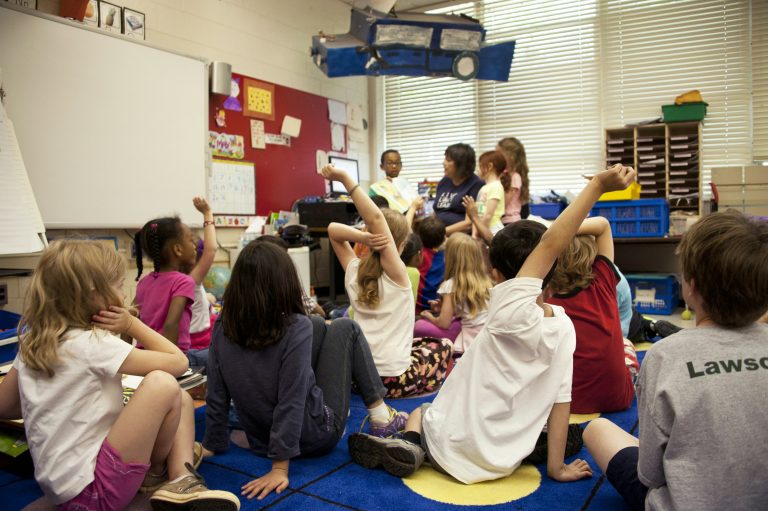Learning French in Québec: Francization, School Language, and Settling in for Moms
Learning French in Québec isn’t just a language step—it’s essential for daily life, school, and belonging here. With Bill 96 strengthening the importance of French, newcomer parents need to know about free courses, school language rights, and what happens to little ones in daycare. Crucially, many government services (provincial and municipal) are only required to serve newcomers in English for the first six months after arrival. This time limit makes swift French learning a high priority. Here’s an enriched guide from my experience as a Québec mom.
📚 1. Importance of Learning French in Québec (Francization)
- Bill 96 (An Act respecting French) strengthens Québec’s language laws—by 2025, French must be dominant in signage, websites, and internal business communication Charter of the French Language
- Québec provides free francisation classes via MIFI:
- Long waitlists, especially post-COVID
- Advanced-level courses may be cancelled due to low enrollment
- Many moms (like me) choose part-time or online courses while caring for little ones
MIFI Financial Support: Beyond Just Free Classes
Many newcomer parents are unaware that MIFI offers a financial incentive (allocation) for attending French classes, especially full-time courses. While it’s not a huge amount, this daily stipend can significantly help cover small expenses like coffee, transport, or even basic supplies. This support is critical, particularly for stay-at-home parents who are dedicating significant hours to language learning. However, you must maintain a very high attendance rate (usually 80-90% or higher) to qualify for this allocation, so plan your learning schedule carefully around your family commitments.
📝 2. How to Register for French Classes
- Go to Québec’s official page: Learn French – Québec.ca
- Choose between full-time (25–30 hrs/week), part-time (9–12 hrs/week), or online sections depending on your routine.
- Complete the MIFI online registration form, and attach your CSQ or permanent resident ID.
- Expect ~50 business days wait time before being placed
- Courses are free, and you may qualify for childcare or transport subsidies.
🏫 3. Children & School: French, Welcome Class, or English?
✔️ French Mandatory for Regular Schools
- All kids under 16 must attend a French-language public school (Kindergarten–grade 11) unless exceptions apply education.
🎒 Welcome Class
- Non-French-speaking Kindergarten/Grade 1 kids often start in a Welcome Class to learn the language before joining regular classes.
- This loving, supportive space helps them acclimate—teachers are experienced with newcomers and focus on play and basic French.
- Mom’s reassurance: Truly, these smaller classes help kids settle quickly!
The Transition After Welcome Class
Once your child graduates from the Welcome Class (which usually takes one to two years), they transition into the regular French curriculum. While they may still require minor catch-up support, the biggest change is the volume and speed of the content. As a parent, this is when you may need to get more involved in school communications, homework, and parent-teacher meetings—all of which are conducted in French. Don’t hesitate to utilize a translator or bring a French-speaking friend for important school meetings in the first year after transition. Being proactive here is key to supporting their long-term academic success in the French system.
🏫 English School Criteria
Kids can attend English school only with a Certificate of Eligibility, generally if:
- The child, a sibling, or a parent has completed most elementary studies in English in Canada, and that parent is a Canadian citizen
- They qualify via Bill 115 or 104 (grandparents’ English education).
- Temporary eligibility: if the family is in Québec on a work or study permit, valid up to 3 years
📌 To apply:
Contact your local English school board, submit birth certificates, proof of parents’ education, and complete an application online or by appointment.
Note: If your little one starts in a French Welcome Class or daycare, don’t worry—they adapt quickly, make friends, and are often more ready for school than we think!
🏡 4. Choosing Your Neighbourhood with Language in Mind
- Prefer areas with bilingual or English-light support like West Island or NDG (Notre-Dame-de-Grâce)? That eases daily life initially.
- These neighbourhoods often offer English daycare, ESL support, and multicultural programs, helping both moms and kids feel at home while mastering French.
👉 Related read: Moving to Québec with Children: 5 Things What I Wish I Had Known for location-based tips and essential services.
⚖️ 5. English Services & Your Rights
You still have key language rights, but it’s vital to understand the Bill 96 timeline concerning provincial and municipal government bodies (like MIFI, the SAAQ, or city services):
The 6-Month Grace Period: Newcomers are entitled to receive services in English (or another language) for the first six months following their arrival in Québec. This is the official window for settling in.
The French-Only Reality After 6 Months: After this initial period, most government bodies are only required to communicate with you in French, unless specific health, public safety, or legal exceptions apply. This means that important communication about your RAMQ, your driving license, or city taxes will default to French.
Your Role: Use the first six months wisely to secure necessary services and register for French classes. Don’t lose English access—even once you learn French, services in English remain for vital matters.
- Federal Services: Service Canada lets you choose English or French for all federal communications—this right is not impacted by the 6-month provincial limit.
- Interpreters: Under the Charter, free interpreters are available in courts, healthcare, or administrative meetings—your right, always.
📊 Quick Summary Table
| Topic | French Path | English Option |
|---|---|---|
| Kids under 16 | French Kindergarten & Welcome Class | Only if eligible with certificate |
| Free French classes for adults | Full-time, part-time, or online via MIFI | N/A |
| Useful neighbourhoods | Bilingual municipalities (e.g., NDG, West Island) | N/A |
| Federal services | Always choose your language | English option guaranteed |
❓ FAQ
Q1: Can my preschooler attend English daycare or Welcome Class?
Yes—daycare and early Kindergarten are accessible in French; Welcome Classes help non-French-speaking children settle before elementary.
Q2: What if my child doesn’t receive English eligibility?
They’ll start in French regular or Welcome Class—most adjust well, especially with classmates and child-centred programs.
Q3: Do French courses stop when my child starts school?
No, but many moms shift to part-time or online courses to manage schedules and still build language skills.
🧭 Final Thoughts
Yes, Québec may feel French-first—but there’s structure and care built in: free adult courses, children’s Welcome Classes, bilingual neighbourhoods, and legal English service rights. As a mom, you can relax—young children adapt remarkably, and you have real support. Embrace the process, choose your environment thoughtfully, and you’re already on a good path.






